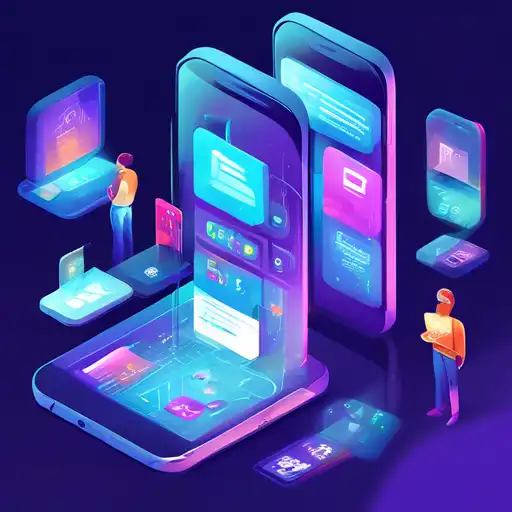Introduction to Mobile Development Trends
The mobile development landscape is continuously evolving, with new technologies and methodologies emerging at a rapid pace. As we look towards the future, several key trends are set to redefine how apps are developed, deployed, and experienced by users worldwide. This article explores these pivotal trends, offering insights into what developers and businesses should watch out for.
1. The Rise of 5G Technology
5G technology is poised to revolutionize mobile development by enabling faster data speeds, lower latency, and more reliable connections. This advancement opens up new possibilities for app functionalities, such as real-time streaming, augmented reality (AR), and virtual reality (VR) experiences. Developers must start leveraging 5G capabilities to stay ahead in the competitive app market.
2. Artificial Intelligence and Machine Learning Integration
Artificial Intelligence (AI) and Machine Learning (ML) are becoming integral to mobile apps, powering features like personalized recommendations, voice recognition, and predictive text. Incorporating AI and ML can significantly enhance user engagement and satisfaction, making it a trend that cannot be ignored.
3. The Growth of Cross-Platform Development Tools
Cross-platform development tools like Flutter and React Native are gaining popularity, allowing developers to write code once and deploy it across multiple platforms. This approach not only saves time and resources but also ensures a consistent user experience across devices. As these tools continue to evolve, their adoption is expected to surge.
4. Increased Focus on App Security
With the increasing amount of sensitive data being processed by mobile apps, security has become a paramount concern. Developers are now prioritizing features like biometric authentication, end-to-end encryption, and secure data storage to protect user information and build trust.
5. The Expansion of Internet of Things (IoT) Integration
The Internet of Things (IoT) is expanding the scope of mobile apps, enabling them to interact with a wide range of devices and sensors. From smart homes to wearable technology, IoT integration offers endless opportunities for innovative app functionalities.
6. The Adoption of Instant Apps
Instant apps allow users to experience an app without downloading it, providing a seamless and efficient way to engage potential customers. This trend is particularly beneficial for businesses looking to increase conversions and reduce friction in the user journey.
Conclusion
The future of mobile development is bright, with numerous trends set to shape the industry in the coming years. By staying informed and adapting to these changes, developers and businesses can create more engaging, secure, and innovative apps that meet the evolving needs of users. For more insights into mobile development, check out our technology section.
